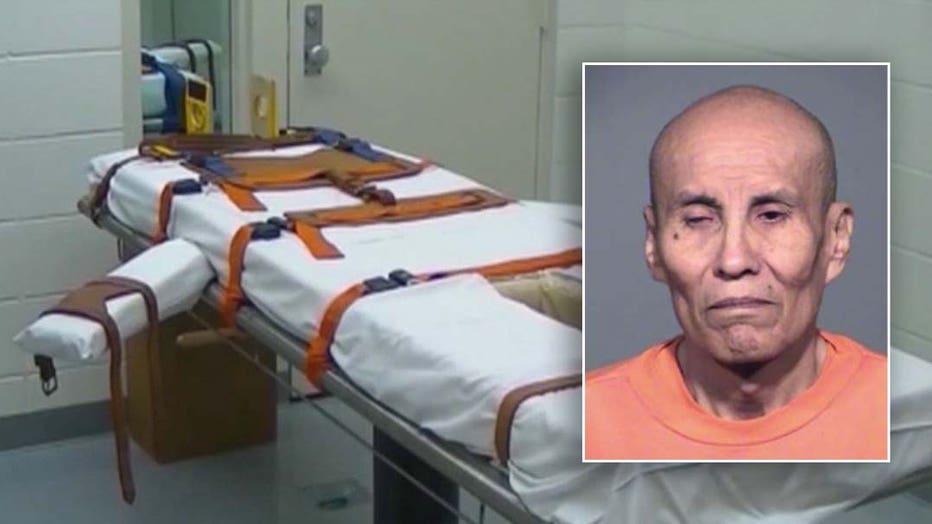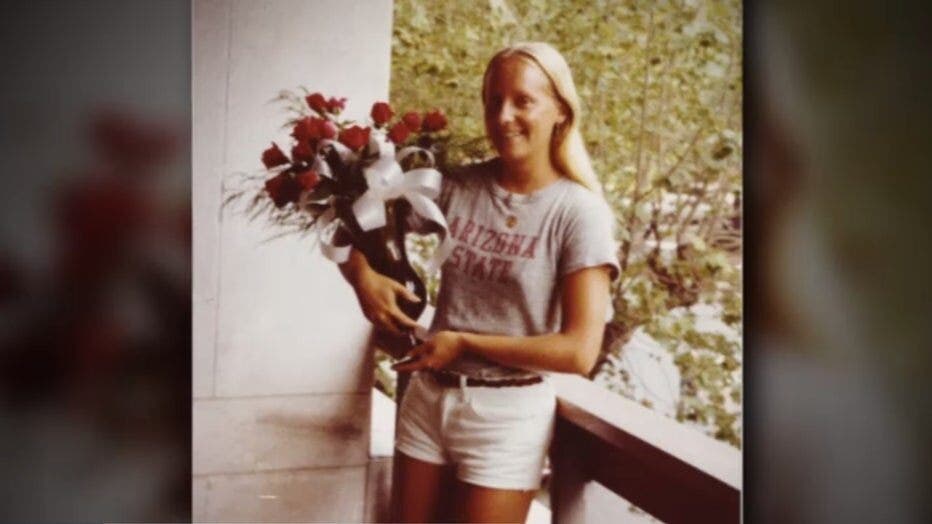Clarence Dixon: Arizona execution on track after court challenges fail

Arizona prisoner Clarence Dixon psychologically fit to be executed: judge
A judge has ruled that an Arizona prisoner convicted in the 1978 killing of an ASU student is mentally fit to be put to death next week, keeping on track what would be the first execution in the state in nearly eight years.
PHOENIX - The planned execution of an Arizona man remained on track Monday after two last-minute court efforts ended without decisions that would sidetrack the state from putting 66-year-old Clarence Dixon to death.
Early in the day, the state Supreme Court declined to overturn a lower court ruling that found Dixon is competent to be put to death. And late in the day, Dixon’s lawyers dropped a challenge in federal court to the drug the state planned to use after agreeing that a new batch mixed by a pharmacist negated their argument that the drugs had expired.
Dixon is set to be executed at the state prison in Florence on May 11, a move that will end decades of waiting for the family of the 21-year-old Arizona State University student he killed in 1978.
Leslie James, the older sister of the victim, Deana Bowdoin, was in federal court Monday morning as the proceedings unfolded and plans to be at the prison on Wednesday. Because of the ongoing legal wrangling over the case, she declined comment through her attorney.
In the state Supreme Court action, the high court without comment declined to review last week’s decision from a judge in Pinal County that rejected arguments that mental illness made Dixon unable to understand why he was being put to death.
While the judge found Dixon does suffer from schizophrenia, he said Dixon is rational and understands the proceedings in his case well enough to show he is competent.
Dixon’s lawyers are now expected to ask a federal judge in Phoenix to consider whether his mental illness means it would be unconstitutional to execute him. That had not yet been filed Monday evening.
Dixon’s attorneys had challenged the state’s planned use of a batch of the sedative sodium pentobarbital that was mixed in February. They contended it had expired and that using it would violate Arizona’s execution rules.
Attorneys for Arizona denied that the drug had expired, but offered instead to mix up the new batch and have it tested for potency. Because it will be used within three days, there is no concern it will be out of date.
Whether the expired drug challenge claim would have been successful was in doubt.
At a Monday morning hearing to consider that claim, U.S. District Court Judge Diane Humetewa said she "struggled" to see how the argument raised a valid constitutional issue in light of U.S. Supreme Court rulings that said courts should not meddle in the details of state lethal injection decisions.
"The question that I struggle with is: Does that rise to a constitutional right?" she asked Dixon attorney Jennifer Moreno.
Moreno told the judge that a 2017 settlement agreement required Arizona to use non-expired drugs, and that helps build their claim that using expired pentobarbital would equate to cruel and unusual punishment.
"Without a proper test, those drugs should have been disposed of and we shouldn’t even be talking about this," Moreno said.

Clarence Dixon
But she acknowledged that if the state is able to mix the new batch and get it tested before the scheduled 10 a.m. Wednesday execution "that resolves the outstanding issues in this case."
That happened Monday evening, when Humetewa called court back into session and Moreno and Assistant Arizona Attorney General Jeff Sparks told her they had agreed that using a new batch would end the litigation.
Arizona and many other states have struggled to get execution drugs in recent years after drug-makers refused to sell their products for that use. Arizona obtained the pentobarbital it plans to use from an unidentified compounding pharmacy.
Dixon, who is blind and in declining health, is set to be the first person put to death in Arizona in nearly eight years, mainly because of problems with the previous execution. The state had to give Joseph Wood 15 doses of a two-drug combination over two hours before he died in July 2014 in an execution that his lawyers said was botched. The state now is using just one drug.
Dixon was serving life sentences for a 1985 attack on a 21-year-old Northern Arizona University student when DNA testing linked him to Bowdoin’s unsolved rape and murder.

Deana Bowdoin
Dixon had was found "not guilty by reason of insanity" in a 1977 assault case in which the verdict was delivered by then-Maricopa County Superior Court Judge Sandra Day O’Connor, nearly four years before her appointment to the U.S. Supreme Court. Bowdoin was killed on Jan. 7, 1978, two days after that verdict, according to court records.
Bowdoin was found dead in her apartment, and had been raped, stabbed and strangled. Dixon had been charged with raping Bowdoin, but the charge was later dropped on statute-of-limitation grounds. He was convicted, though, in her death.
Defense lawyers said Dixon has been diagnosed with paranoid schizophrenia on multiple occasions, has regularly experienced hallucinations over the past 30 years and should not be executed.
Last Tuesday, the Arizona Supreme Court issued a warrant for a second execution. Frank Atwood is set to die June 8 for killing an 8-year-old girl in 1984. Authorities say Atwood kidnapped the girl, whose body was found in the desert northwest of Tucson.
___
Associated Press writer Jacques Billeaud contributed to this report.
Continuing coverage
- Arizona has seen 2 botched executions: Here's what to know about the state's history with capital punishment
- Arizona set to resume executions following years-long pause: here's what you need to know
- Only 3 women are on Arizona's death row: Who are they and what were they sentenced to death for?

Arizona Supreme Court signs off on 2nd execution warrant of 2022
Arizona's Supreme Court has, in the span of about a month, issued two Warrants of Execution for men who have been behind bars for decades. FOX 10's Stephanie Bennett has more on Frank Atwood, who is scheduled to be put to death in June.

Arizona state board rejects clemency bid by Clarence Dixon
Dixon, who was sentenced to death for the murder of an ASU student decades ago, is set to be executed in May. FOX 10's Nicole Garcia reports.

